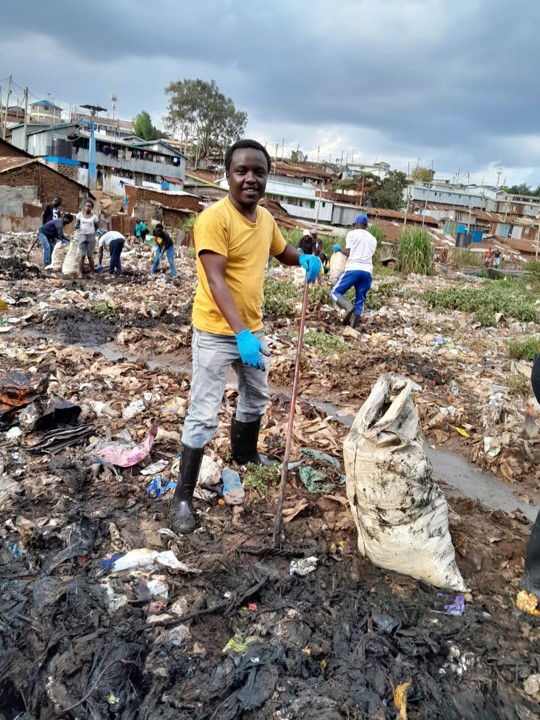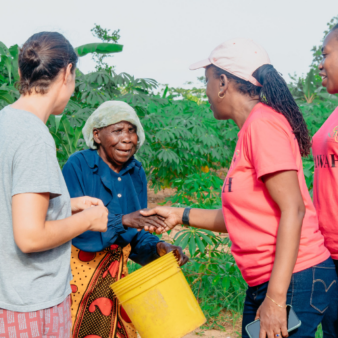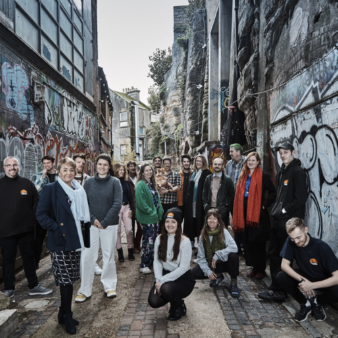Climate change is causing an increase in extreme weather across the globe. Events such as flooding, storms, heatwaves and droughts are becoming more common and can be particularly catastrophic for the 1 billion people worldwide who live without a decent home.
As more people move to cities, they are often forced to make their homes on unstable land in ‘informal settlements’. These unofficial communities often lack basic services and infrastructure (like paved roads, drains and sewers), which means they are especially vulnerable to the effects of extreme weather. Despite this, many people living in informal settlements have no access to weather and climate information services. If they do, the information can be too technical and hard to understand or just not very useful for people in these communities.
DARAJA (Developing Risk Awareness through Joint Action) is a weather forecasting and early warning service. It gives people living in informal urban communities reliable and regular climate information so they can protect themselves and their livelihoods by taking preventative action ahead of major weather events.
The service operates in two cities in East Africa: Nairobi, in Kenya; and Dar es Salaam, in Tanzania.
Around 70% of the population of these cities live in informal settlements. Both cities are expanding as more people arrive from rural areas and they regularly flood during periods of heavy rain.
DARAJA is run by Resurgence – a global design, communications and consulting social enterprise specialising in managing urban climate risk and resilience. Resurgence works in partnership with local organisations operating in informal settlements to help people repair their homes and improve public areas to reduce the risk of weather-related damage.
Since September 2018, DARAJA has given more than 980,000 people better access to weather information. In five years, Resurgence hopes the service will be available to 250 million people living in informal settlements in 30 cities across the globe.
The project in practice
DARAJA is one of the first projects of its kind to focus on urban, rather than rural, communities. Resurgence researched how people living in informal settlements would prefer to access weather information (for example TV, radio, mobile phone etc), and then built a network of partners to co-design the service. These included forecasters, climate scientists, broadcasters, city officials, disaster management agencies, and, most importantly, the people who would be using the service. A social media campaign and community groups helped spread the word about DARAJA, getting people involved and letting them know how to access, interpret and use the forecasts.
Resurgence wanted DARAJA to be different from traditional institutional weather forecasts that were often difficult to understand. It involved community leaders representing women, savings groups, faith groups and youth groups, among others, in design workshops where they could help to shape the service as it was developed.
This community feedback helped DARAJA develop easy-to-understand icons in local languages. Information is tailored according to local needs and ranges from daily weather broadcasts on radio and television, to a ‘community communication system’. This involves trained community leaders sharing weekly and severe weather warnings through text messages, phone calls and word of mouth.
DARAJA means ‘bridge’ in Swahili and one of the main aims of the service is to build relationships between the informal settlement communities, climate information providers and city authorities. The community now has regular contact with local and central government officials and weather forecasters through seasonal meetings and a WhatsApp group.
In addition to providing essential weather information, DARAJA encourages people to actively protect themselves from adverse weather conditions. For example, by moving valuable possessions out of harm’s way and making repairs to their homes to improve structural safety and reduce potential damage.
These activities are supervised by local partners, Kounkuey Design Initiative (KDI) in Kenya, and Centre for Community Initiatives (CCI) in Tanzania. In Dar es Salaam, CCI also carries out work to improve community infrastructure, such as cleaning drains to increase water flow, strengthening sanitation facilities, and encouraging administrators to repair damaged school buildings.
Social and environmental impact
Resurgence successfully involved 67 organisations in DARAJA’s pilot schemes in Kenya and Tanzania. The community-centred approach to developing the service also led to the formation of new local groups, like Weather Mtaani (“Neighbourhood Weather”). DARAJA recruited volunteers to form this group, which filmed short public awareness videos on the importance of weather information for the community.
Research conducted before and after the launch of DARAJA involved more than 700 households across Nairobi and Dar es Salaam, showing that the service has reached many people in both cities. In Nairobi, 93% of informal settlement residents now receive weather information compared to 56% before. The same proportion of residents say they understand the information very well, with 80% saying the language used is the main reason for this. In Dar es Salaam, 93% of informal settlement residents receive weather information compared to 74% before. The most popular feature of the service is the advice provided (80%).
Thanks to DARAJA, people feel much more prepared for bad weather. The service has led to a 300% increase in household repairs made in response to weather forecasts in Nairobi, and a 122% increase in Dar es Salaam. This work includes raising building foundations, waterproofing walls, raising doorsteps, and clearing drains. Materials used for improvement works to homes and public spaces are sourced locally, so communities can maintain, repair and replace items easily.
Many people feel these actions have saved their household income and that they were able to protect their belongings (76% in Nairobi and 81% in Dar es Salaam).
Funding
Resurgence’s operating costs are covered by a combination of foundation grants and consulting income. The DARAJA project has received $2,000,000 USD in total from: the UK Foreign, Commonwealth & Development Office (FCDO); Weather and Climate Information Services for Africa (WISER); Climate KIC; the German Agency for International Cooperation (GIZ) and United Nations Development Programme (UNDP) Africa.
Funding for DARAJA is secured until its scheduled completion in 2025. The service has an annual budget of $300,000 USD. This covers Kenya and Tanzania as well as developing projects in Sudan, Uganda and Ethiopia.
Resurgence has recently been awarded a $250,000 grant from the Lloyd’s Register Foundation for additional support for DARAJA in Kenya, Tanzania and Uganda.
In Tanzania, residents spend about 50,000-100,000 TZS ($21 USD – $40 USD) on housing improvements. In Kenya, local partners KDI do not fund housing improvements (these are led by residents themselves). Instead, it finances the improvement of public and community spaces in informal settlements. Residents contribute 5% of the funding to these projects either through loans or payment in-kind by providing on-site labour.
Transfer and expansion
Resurgence has ambitious plans to scale DARAJA and work is already underway to expand the service in East Africa, funded by a two-and-a-half-year grant from the UK Foreign, Commonwealth & Development Office through the Weather and Climate Information Services (WISER) programme led by the Met Office.
The DARAJA regional East Africa Scale Up Programme will focus on extreme heat and drought forecasting and reduction. Target countries and cities include Sudan (Khartoum), Uganda (Kampala), Tanzania (Dar es Salaam), Kenya (Nairobi), and Ethiopia (Addis Ababa). DARAJA currently works with Slum Dwellers International (SDI) in a number of these locations.
Resurgence wants to adapt DARAJA for use in small island states and has set up a pilot project in Kingston, Jamaica. This is being financed by the World Meteorological Organisation CREWS Initiative and the InterAmerican Development Bank.
Resurgence is also looking at how to finance DARAJA locally, rather than depending on international funding, and is hoping to learn from other urban initiatives to achieve this.
Despite its apparent simplicity, DARAJA has already had a positive impact on the lives of almost 1 million people. As the effects of the global climate emergency become more apparent, the need for its services will grow. DARAJA recognises this and is working hard to achieve its aim of making 1 billion vulnerable people safer from climate disasters by 2030.
Download your free copy of the full project summary
 People living in informal urban settlements are particularly vulnerable to extreme weather, like storms, floods and heatwaves. Yet these same communities are often unable to access weather information that could help save their lives or prevent devastating damage to their homes and livelihoods.
People living in informal urban settlements are particularly vulnerable to extreme weather, like storms, floods and heatwaves. Yet these same communities are often unable to access weather information that could help save their lives or prevent devastating damage to their homes and livelihoods.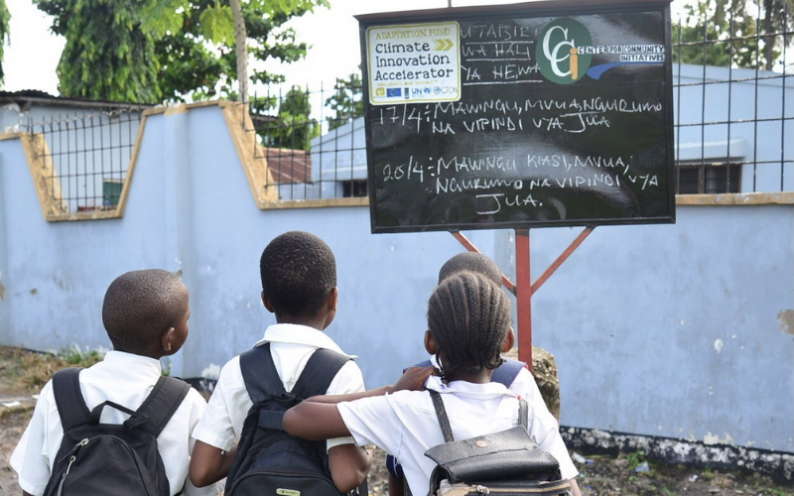
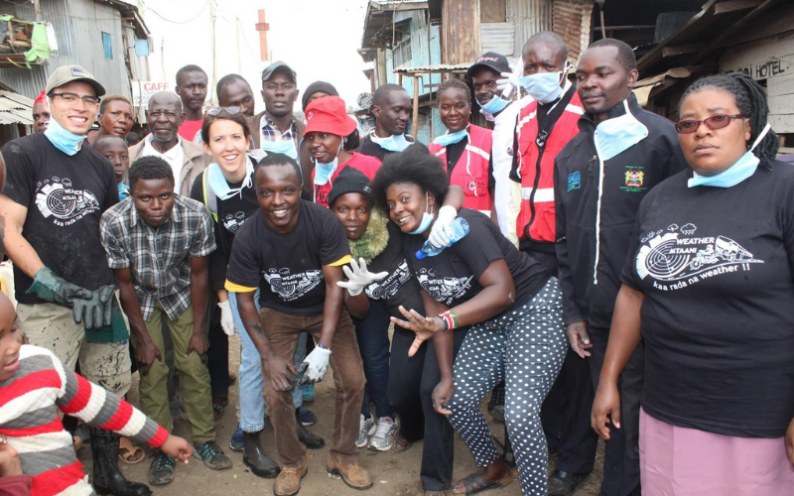
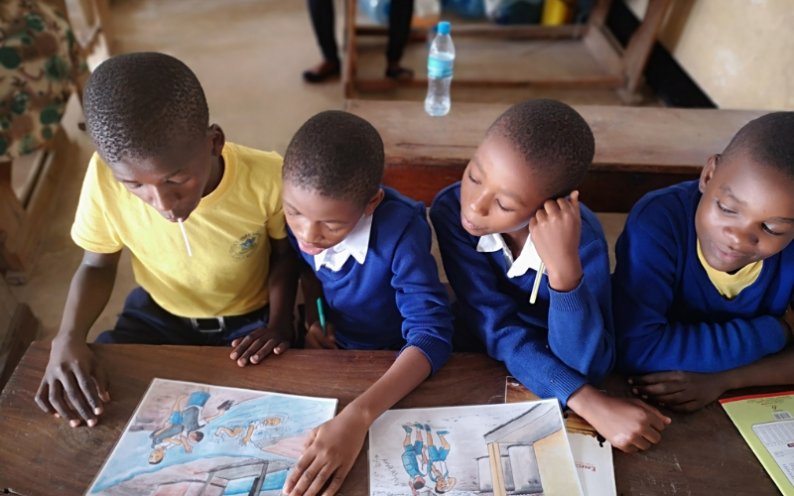
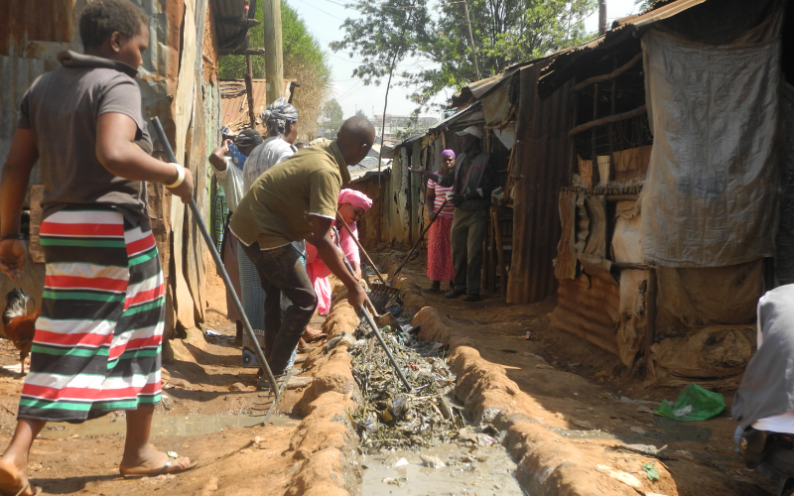
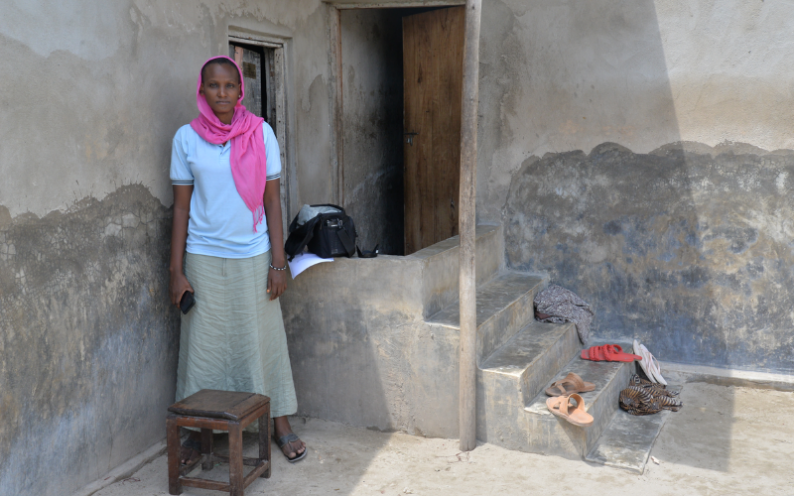
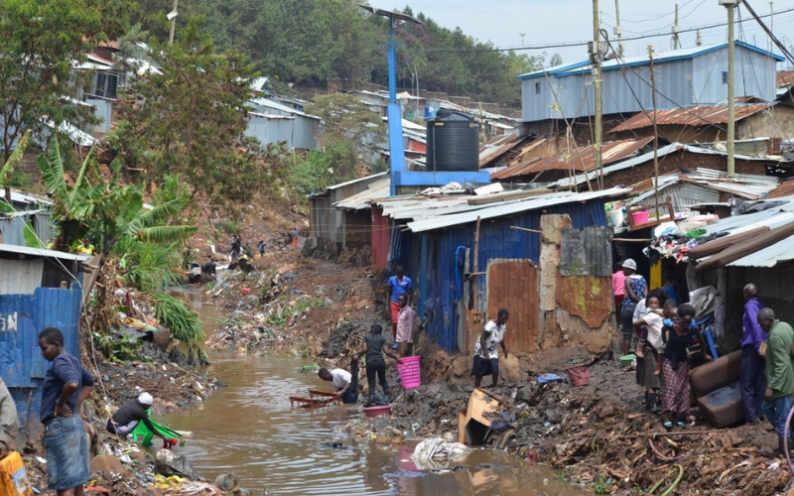

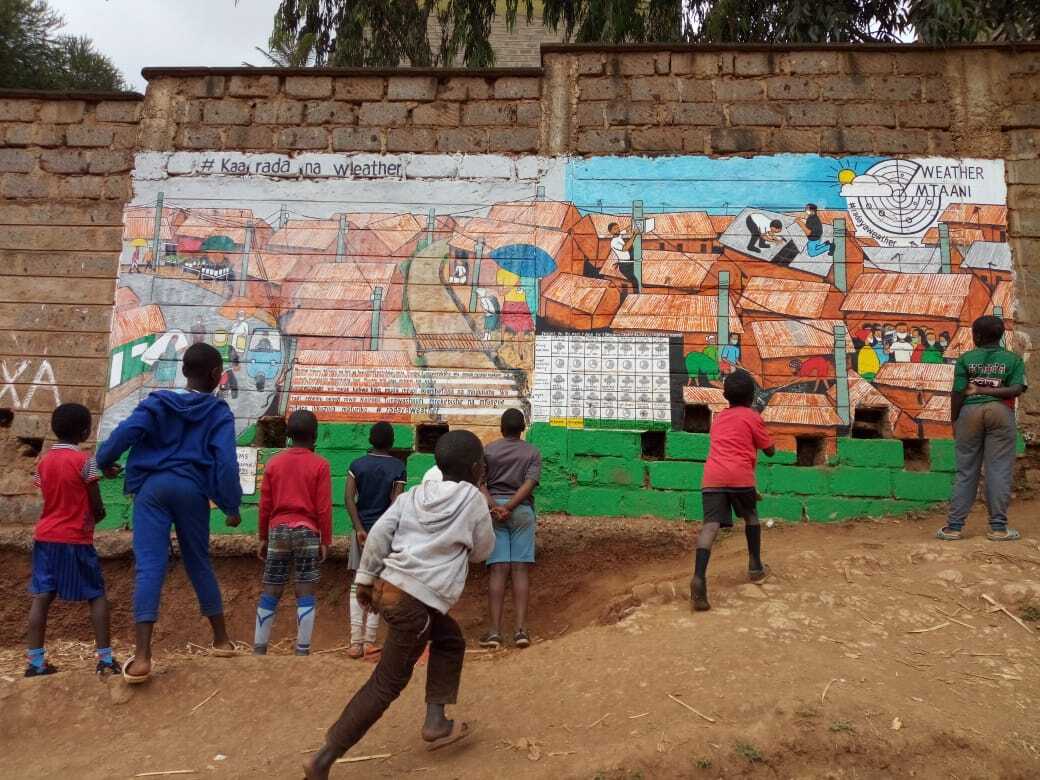
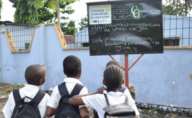
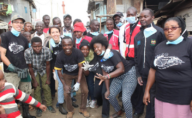
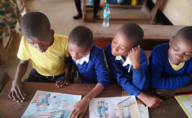
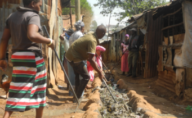
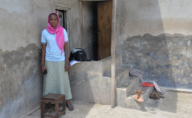
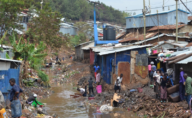
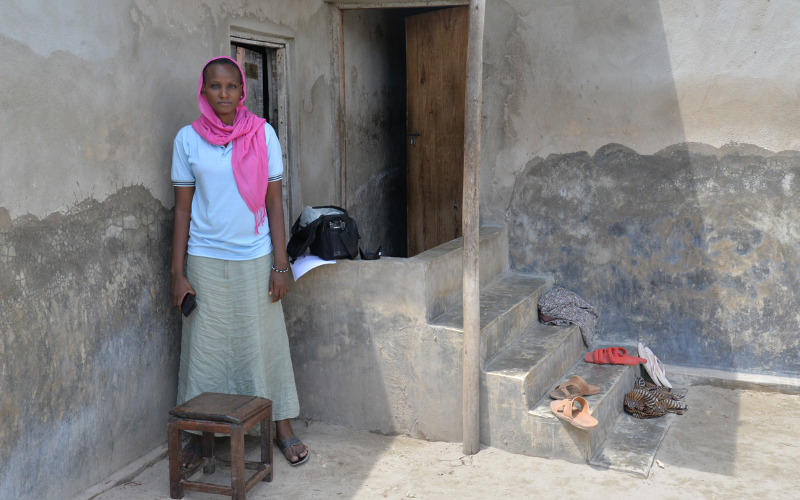 Agnella Malilima (31) is a resident living at the informal settlement of Kigogo Mbuyuni in Dar es Salaam Tanzania, staying at Kigogo with her parents and siblings in a 3-bedroom house.
Agnella Malilima (31) is a resident living at the informal settlement of Kigogo Mbuyuni in Dar es Salaam Tanzania, staying at Kigogo with her parents and siblings in a 3-bedroom house.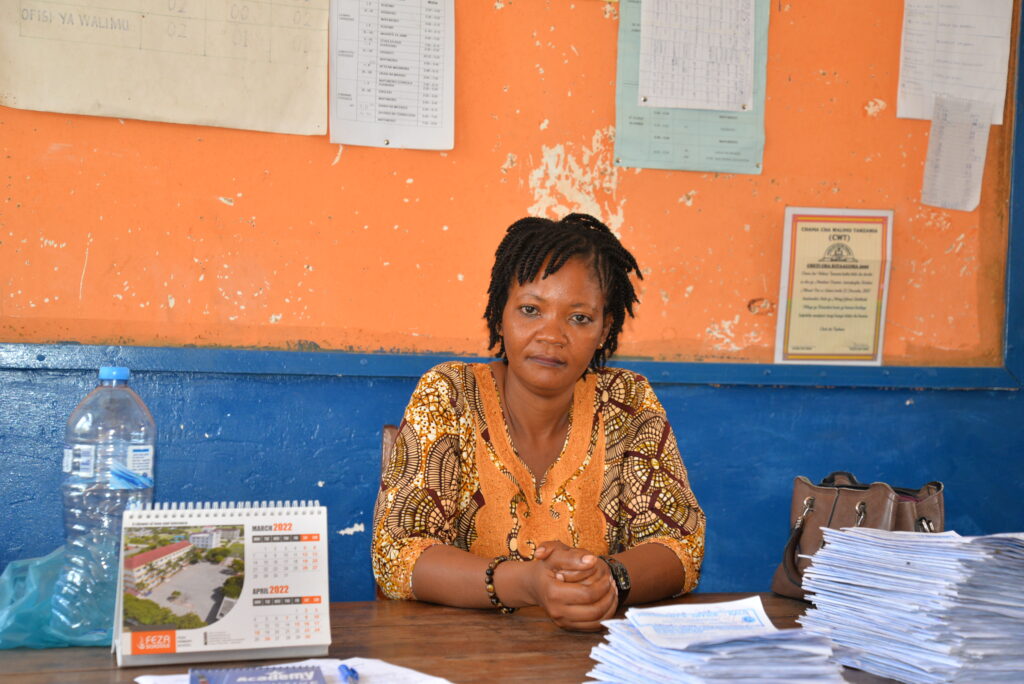 Esther Lugulu is a teacher at Gilman Rutihinda Primary School, in the Kigogo Mbuyuni informal settlement in Dar Es Salaam, Tanzania. She lives in Kigamboni municipal, more than 10 kilometers from where she works. Esther rarely used weather information in her day-to-day life, despite extreme weather and climate change affecting her work.
Esther Lugulu is a teacher at Gilman Rutihinda Primary School, in the Kigogo Mbuyuni informal settlement in Dar Es Salaam, Tanzania. She lives in Kigamboni municipal, more than 10 kilometers from where she works. Esther rarely used weather information in her day-to-day life, despite extreme weather and climate change affecting her work.